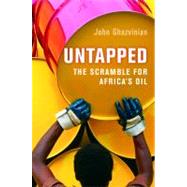
Note: Supplemental materials are not guaranteed with Rental or Used book purchases.
Purchase Benefits
What is included with this book?
| Preface | p. ix |
| Introduction | p. 1 |
| The Onshore Effect | p. 17 |
| The Offshore Illusion | p. 83 |
| "A Country in Africa" | p. 126 |
| Instant Emirates | p. 166 |
| Paradise Found? | p. 207 |
| The Place Where People Wait | p. 245 |
| The Chinese are Coming!...But Who Isn't? | p. 274 |
| Epilogue | p. 296 |
| Acknowledgments | p. 299 |
| A Note on Sources and Suggested Further Reading | p. 302 |
| Index | p. 307 |
| Table of Contents provided by Ingram. All Rights Reserved. |
The New copy of this book will include any supplemental materials advertised. Please check the title of the book to determine if it should include any access cards, study guides, lab manuals, CDs, etc.
The Used, Rental and eBook copies of this book are not guaranteed to include any supplemental materials. Typically, only the book itself is included. This is true even if the title states it includes any access cards, study guides, lab manuals, CDs, etc.
Excerpted from Untapped: The Scramble for Africa's Oil by John Ghazvinian
All rights reserved by the original copyright owners. Excerpts are provided for display purposes only and may not be reproduced, reprinted or distributed without the written permission of the publisher.